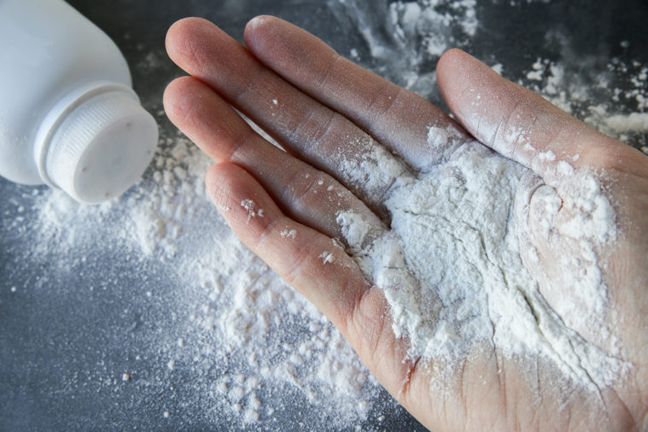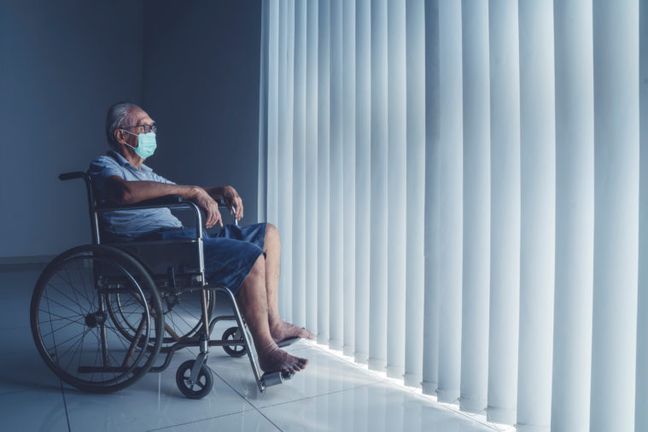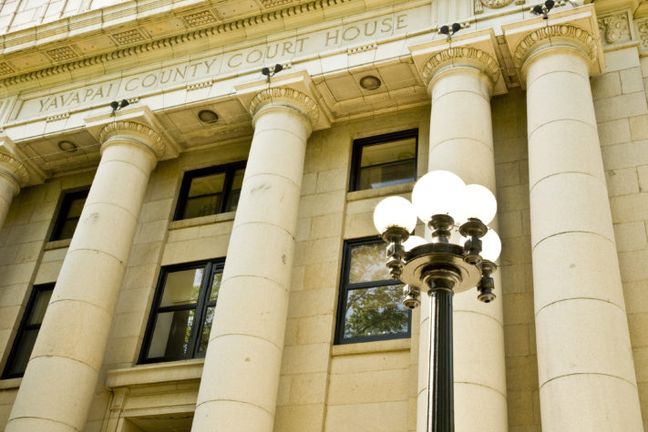Philadelphia Indemnity Insurance Co. v. Stephouse Recovery Inc., et al.[1]
Insurer Philadelphia Indemnity Insurance Co. (PIIC) recently won summary judgment against an addiction treatment company (Stephouse Recovery) to recover payment it made toward that company’s settlement of a suit over the death of one of its residents who overdosed. The underlying suit was filed by the father of a man who died while at one of Stephouse’s sober living homes, but the judge had ruled that the suit was subject to a coverage exclusion in the policy that Stephouse had with PIIC that ran in 2014-2015.
Stephouse had applied to get professional liability insurance from PIIC in February 2013 to cover its outpatient counseling services, and renewed it a year later. The coverage was subject to several exclusions, however, including one for suits claiming damages arising out of Stephouse’s liability as the owner of any facilities with room and board arrangements. While the 2014 policy was running, the decedent/resident (who didn’t get any counseling or treatment directly at the home) overdosed, and his father sued Stephouse in state court. The suit included a claim for professional negligence, so PIIC defended Stephouse, and settled for $1 million.
PIIC then filed suit and moved for summary judgment on various claims. It asked the court to allow it to rescind the two policies at issue, but the judge denied the insurer summary judgment on that front. The court did, however, grant the insurer summary judgment on its claim that it did not have to indemnify Stephouse for the overdose case. It found that the exclusion regarding bed and board arrangements applied to this case. As a result, the insurer was able to recoup $1 million from the rehab company in this policy dispute.
Schmitz v. Johnson & Johnson et al.[2]
Johnson & Johnson (J&J) was previously found liable for negligence, design defect, failure to warn and concealment for selling asbestos-tainted talcum products that likely caused a woman’s mesothelioma. The jury in that case, however, was hung on whether J&J should owe punitive damages. A separate, bifurcated trial on the issue of punitive damages is set to begin next month. In a pretrial hearing that took place this month, the judge ruled that this jury will not be told about the previous jury’s conclusions that two other companies were 20% responsible for selling the cancer-causing products (Colgate-Palmolive and Avon Products, Inc.).
In so ruling, the judge stated that it does not matter if there are other tortfeasors for the purpose of deciding whether J&J acted with “malice, oppression or fraud,” which would warrant punitive damages. The judge compared the situation to a scenario in which a pedestrian is hit by two cars while crossing the street, and one of the drivers is drunk while the other is sober. The judge said a jury would not have to know that another car also hit the pedestrian to decide whether the drunk driver’s conduct warranted punitive damages.
Counsel for Johnson & Johnson argued that the Plaintiff’s use of Colgate and Avon products put her at a higher risk, and those companies were selling similar talc products, also thinking they were safe. But the judge rejected that argument and drew another analogy, comparing the situation to a scenario in which a company discovers that french fries are poisonous, but continues to sell them for 50 years. The only relevant issue, the judge said, was the company’s acts after learning of the culpability fact, not what others were doing. This was in spite of Johnson & Johnson’s repeated arguments that punitive damages cannot be decided without knowing why the previous jury found J&J and its subsidiary liable for the other claims. In spite of this ruling, J&J plans to file a motion seeking to bar the Plaintiff from testifying on any pain and suffering, arguing that the testimony is not relevant to punitive damages and has no probative value.
In Re Hyundai and Kia Fuel Economy Litigation[3]
A recent Ninth Circuit decision that affirmed a nationwide settlement in litigation over two car companies’ fuel efficiency reset the standard for certifying consumer class action settlements. This came after the appellate panel’s controversial 2018 decision which nullified the estimated $200 million deal based on potential variations in state consumer protection laws. Here, the Ninth Circuit concluded that when it comes to settling a nationwide class action, the primary question for a court to consider is whether the settlement is fair. The courts should not be burdened with having to do a deep dive into variations in state consumer protection laws before certifying a nationwide class just for settlement purposes.
The decision also made clear that In Re Hyundai and Kia was a “far cry” from the U.S. Supreme Court’s 1997 decision in Amchem Products Inc. v. Windsor, which set the precedent for analyzing litigation classes versus settlement classes. Amchem said that courts should reject settlements that present conflicts between members, or favor or disfavor certain members. But that case had involved a sprawling asbestos settlement class with members who had wide-ranging injuries, some exposure-only and others imminently fatal, according to the court. In In Re Hyundai and Kia, the parties reached a nationwide deal that included protections for consumers in various states.
[1] Philadelphia Indemnity Insurance Co. v. Stephhouse Recovery Inc. et al., case no. 8:18-cv-00564, U.S. District Court for the Central District of California
[2] Schmitz v. Johnson & Johnson et al., case no. RG18923615, Superior Court of the State of California, County of Alameda
[3] In Re Hyundai and Kia Fuel Economy Litigation, case nos. 15-56014, 15-56025, 15-56059, 15-56061, 15-56064 and 15-56057 in the U.S. Court of Appeals for the Ninth Circuit

 Author: Emily Beck
Author: Emily Beck
 Cannabis Workers Allege Quota to Trim 4 Pounds a Day Violates the California Labor Code
Cannabis Workers Allege Quota to Trim 4 Pounds a Day Violates the California Labor Code
 The Ninth Circuit Reminds Us: Every Word Matters
The Ninth Circuit Reminds Us: Every Word Matters
 NO WAY, PRO SE! The Consequences of Abusing the Judicial System as a Pro Se Litigant in Colorado
NO WAY, PRO SE! The Consequences of Abusing the Judicial System as a Pro Se Litigant in Colorado
 Victim of Financial Mismanagement or Unlawful Retaliation? New Jersey City University Program Founder Claims School Retaliated After Reporting Alleged Sexual Harassment
Victim of Financial Mismanagement or Unlawful Retaliation? New Jersey City University Program Founder Claims School Retaliated After Reporting Alleged Sexual Harassment
 “Real Housewives” Gets a Reality Check
“Real Housewives” Gets a Reality Check
 Missing a Chapter: Insufficiency of Expert Deposition Testimony in Medical Malpractice Litigation
Missing a Chapter: Insufficiency of Expert Deposition Testimony in Medical Malpractice Litigation
 Crash Course: Why Summary Judgment Misses the Mark in Illinois Multi-Cause Limousine Crash Collision
Crash Course: Why Summary Judgment Misses the Mark in Illinois Multi-Cause Limousine Crash Collision
 Bitter Truths: Lead, Cadmium, and Defective Pleadings in California Chocolate Class Action
Bitter Truths: Lead, Cadmium, and Defective Pleadings in California Chocolate Class Action
 The Law of Unintended Consequences: Including Insurance Brokers in Litigation Strategy Communication May Waive the Attorney-Client Privilege
The Law of Unintended Consequences: Including Insurance Brokers in Litigation Strategy Communication May Waive the Attorney-Client Privilege
 What Makes a Verdict Go Nuclear? $102 Million Jury Verdict v. $370,000
What Makes a Verdict Go Nuclear? $102 Million Jury Verdict v. $370,000
 New York Bill Narrows Liability Immunity for Nursing Homes and Hospitals
New York Bill Narrows Liability Immunity for Nursing Homes and Hospitals
 Florida Update: Tort Reform Phantom Damages Bill Fails
Florida Update: Tort Reform Phantom Damages Bill Fails
 California Case Law Update
California Case Law Update
 New York Case Law Update
New York Case Law Update
 Florida Case Law Update
Florida Case Law Update
 Arizona Case Law Updates
Arizona Case Law Updates
 California Case Law Update
California Case Law Update